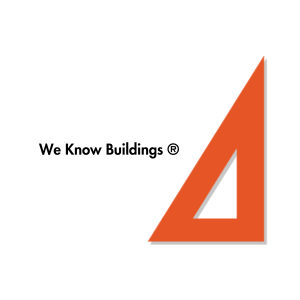Top Capital Needs Assessment Providers in New Jersey: Enhance Property Value
Effective planning is crucial for building owners to ensure optimal performance over time. Criterium-Hanna Engineers, as New Jersey’s top Capital Needs Assessment providers offers these services both independently and as a supplement to Property Condition Assessments (PCA).  Starting with a PCA’s detailed evaluation of the building’s current condition, the Capital Needs Assessment (CNA) forecasts capital needs and estimates repair and replacement costs over a designated period, typically 20 years. The report includes a comprehensive life-of-the-building cost projection and annual estimates for repairs and replacements..
Starting with a PCA’s detailed evaluation of the building’s current condition, the Capital Needs Assessment (CNA) forecasts capital needs and estimates repair and replacement costs over a designated period, typically 20 years. The report includes a comprehensive life-of-the-building cost projection and annual estimates for repairs and replacements..
What is a Capital Needs Assessment?
 Capital needs assessment (CNA) is a crucial process for any property owner or manager, particularly in the commercial real estate sector. It involves a detailed analysis of the current state of a property and the projected costs for repairs, maintenance, and upgrades over a specified period. This service is vital for maintaining the property’s value and ensuring it remains safe and functional for its occupants.
Capital needs assessment (CNA) is a crucial process for any property owner or manager, particularly in the commercial real estate sector. It involves a detailed analysis of the current state of a property and the projected costs for repairs, maintenance, and upgrades over a specified period. This service is vital for maintaining the property’s value and ensuring it remains safe and functional for its occupants.
Importance of a Capital Needs Assessment
- Financial Planning: CNAs provide property owners with a clear understanding of future capital expenditure requirements. This allows for better financial planning and budgeting, ensuring that funds are allocated efficiently over time.
- Risk Management: Identifying potential issues before they become critical can help mitigate risks associated with property deterioration. This proactive approach can prevent costly emergency repairs and extend the lifespan of building systems.
- Property Value: Regular maintenance and timely upgrades contribute to preserving or even enhancing the property’s market value. A well-maintained property is more attractive to tenants and potential buyers.
- Regulatory Compliance: CNAs ensure that properties comply with current building codes and regulations. This is particularly important for avoiding fines and legal issues associated with non-compliance.
Key Components of a Capital Needs Assessment

- Site Assessment: Evaluates the condition of the site, including landscaping, parking areas, walkways, and other exterior features.
- Building Envelope: Examines the condition of the building’s exterior, including the roof, walls, windows, and doors. This component assesses the structural integrity and weatherproofing of the property.
- Mechanical Systems: Reviews the heating, ventilation, and air conditioning (HVAC) systems. This includes an evaluation of the efficiency, functionality, and remaining useful life of these systems.
- Electrical Systems: Assesses the condition and capacity of the electrical infrastructure, including wiring, panels, lighting, and emergency power systems.
- Plumbing Systems: Evaluates the plumbing infrastructure, including water supply, drainage, and sewage systems. This component also checks for any signs of leaks, corrosion, or other issues.
- Life Safety Systems: Reviews the fire protection and safety systems, such as fire alarms, sprinklers, and emergency exits. Ensuring these systems are up to code is crucial for occupant safety.
The Capital Needs Assessment Process in New Jersey

- Initial Consultation: The process begins with a consultation between the property owner and the assessment team to discuss the scope of the assessment and specific concerns or areas of focus.
- Site Inspection: A thorough on-site inspection is conducted by our experienced engineers and building professionals. This step involves detailed examinations and tests of all major building systems.
- Data Analysis: The collected data is then analyzed to determine the current condition of the building components and to forecast future maintenance and replacement needs.
- Report Generation: A comprehensive report is generated, outlining the findings of the assessment. The report includes detailed descriptions of identified issues, recommended actions, and cost estimates for each recommended repair or replacement.
- Presentation and Discussion: The findings are presented to the property owner, and a discussion follows to address any questions or concerns. This step ensures that the owner fully understands the report and the implications for their property.
- Implementation Planning: Based on the assessment report, a detailed implementation plan is developed. This plan prioritizes the recommended actions and establishes a timeline and budget for completing the necessary work.
Benefits of CNAs by Criterium-Hanna Engineers
 Criterium-Hanna’s capital needs assessment services are designed to provide property owners with actionable insights and clear plans for maintaining and improving their properties. Some key benefits include:
Criterium-Hanna’s capital needs assessment services are designed to provide property owners with actionable insights and clear plans for maintaining and improving their properties. Some key benefits include:
- Expertise: Criterium-Hanna’s team of experienced engineers and building professionals ensures a thorough and accurate assessment.
- Customized Reports: Each report is tailored to the specific needs and conditions of the property, providing relevant and actionable recommendations.
- Long-term Planning: The assessments support long-term strategic planning, helping property owners allocate resources effectively and avoid unexpected expenses.
- Peace of Mind: Knowing that your property is in good condition and that there is a plan in place for future maintenance provides significant peace of mind.
A Capital Needs Assessment is an invaluable tool for property owners and managers, providing a clear roadmap for maintaining and improving the property over time. By identifying potential issues early and planning for future capital expenditures, property owners can ensure their investments remain secure and their buildings stay in top condition. Criterium-Hanna’s expertise in providing detailed, customized CNAs makes them a trusted partner in the commercial real estate sector. Investing in a CNA today can save property owners significant time, money, and stress in the long run.

